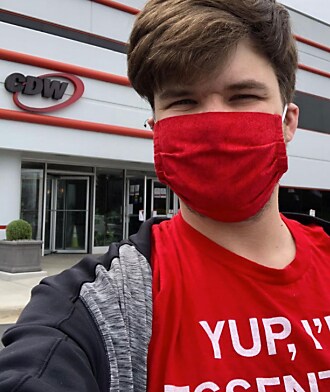What's New
Protecting Coworkers from COVID-19
The safety and wellbeing of our coworkers and communities are top priorities. It was even more critical in dealing with the COVID-19 pandemic in 2020, especially as our distribution centers remained open and our essential coworkers continued to work onsite. Our coworkers swiftly pulled together to develop and implement strategies that addressed the new and changing safety needs at our various locations.
Our coworkers stepped up to address the unique challenges of COVID-19 by reinforcing safe behaviors, participating in expanded health and safety training, wearing additional personal protective equipment and watching out for each other. We also leveraged our existing flu season reminders and preventive measures to address COVID-19 precautions.
COVID-19 health and safety efforts by our U.S., U.K. and Canada coworkers included:
- Implemented remote working for non-distribution center coworkers, and provided extra support, training and resources to enable work-from-home coworkers to continue to be engaged and effective in their daily responsibilities.
- Reinforced and expanded our safety training programs and created awareness videos and additional signage to remind coworkers in our distribution centers of safety protocols to prevent the spread of the virus.
- Secured a significant supply of personal protective equipment, including face shields, face masks and gloves, and made sure that coworkers could access additional PPE as needed and complied with all onsite PPE requirements.
- Expanded the number of hand sanitizer stations at restrooms, reception areas, break areas and facility entry points.
- Used colored vests or shirts to segment the teams in our distribution centers, which separated the workforce into teams and allowed us to do cleaning between shifts.
- Set up temperature-taking stations at distribution center entrances.
- Implemented social distancing measures such as markers on the floor between workstations and identifying which seating areas could be used.
- Disabled common-area water fountains to prevent contact spreading of the virus.
- Closed cafeterias and provided free box lunches to distribution center coworkers.
- Piloted the use of GPS-based technology for contact tracing and social distancing, as well as real-time feedback on work task ergonomics.
